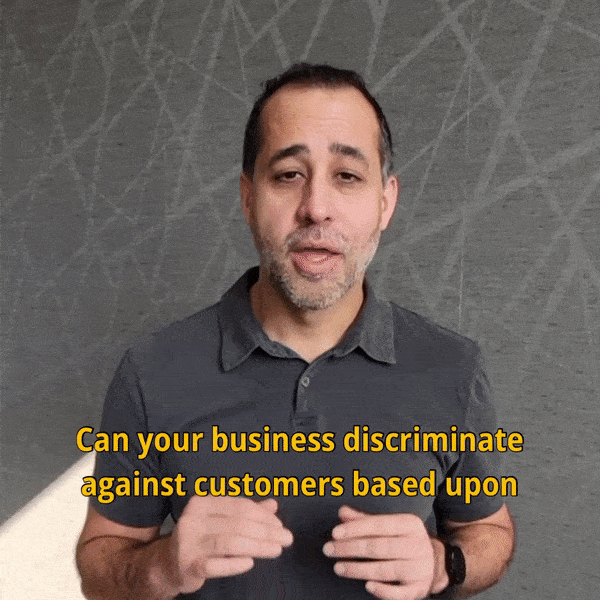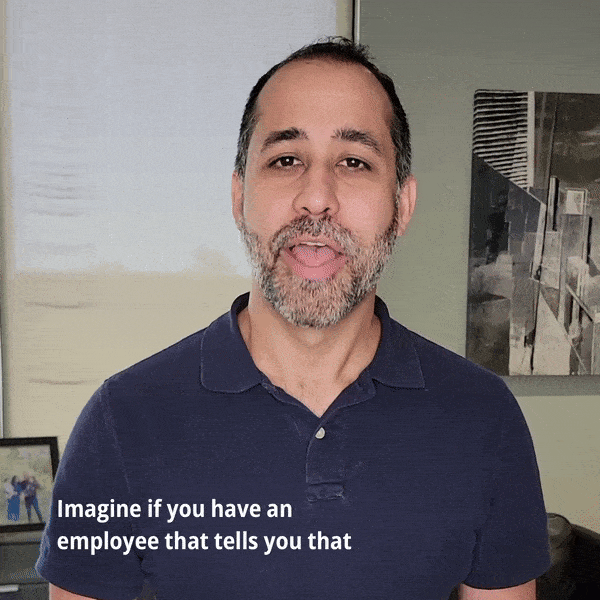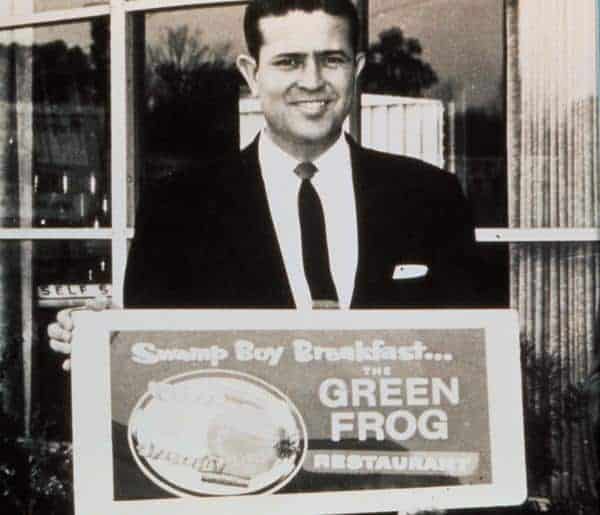If you haven’t yet gotten the memo, sex discrimination is not okay. If you don’t believe me, then just ask New Prime Trucking, Inc.
This mega trucking company, which is headquartered in Springfield, Missouri, recently learned it would be required to pay $3.1 million because of a policy it was using with its training program that was deemed sexist.
Same-Sex Training Program
New Prime Trucking started a same-sex training program in 2004. Under the program, men entering the workforce were trained by men and women were trained by other women.
Ostensibly, the training program was designed to protect women, who might not be comfortable being trained by a man alone because of the potential opportunity for harassment. In fact, the policy was created after the company lost a suit in which a female sued after having claimed to being harassed by a male trainer. However, the same-sex training had a perhaps unconsidered result:
There were a lot more male trainers than women within the company. Because of this, women entering the workforce were forced to wait extended periods of time to receive their training when a trainer was available – in some cases, this meant women were waiting up to 18 months in order to receive their required training. It also meant that a lot of women were denied employment because they would not be able to be properly trained in a timely manner.
There were enough male trainers that the men entering the workforce were promptly trained upon hire.
Because of this policy, which disproportionately affected women, the company stopped using the same-sex training program in 2013.
The Verdict
In 2011, two years before the company stopped using its alleged discriminatory same-sex training policy, the EEOC filed a lawsuit on behalf of several women who had either been denied employment because of the slow training schedule or who had to wait because of the schedule.
Earlier this year, the company agreed to pay $250,000 to one of the first women to bring a suit. However, the rest of the payment will go to over 60 other women also affected by the discrimination.
In addition to the monetary damages the company will have to pay, the court also ordered the company to refrain from using this or similar policies in the future. While the company had already changed its training policy, this ruling ensures that they will not go back to a similar policy at any point in the future. The court also stated that the company cannot discriminate against applicants or employees based off their sex or create any discriminatory policies against them.
After the ruling, the company reiterated its belief that the policy was created to protect women, not discriminate against them. A spokesperson for the company, training specialist Brook Moseley, said on the matter,
“The over-the-road trucking industry is not like any other industry when it comes to training drivers. Before implementing the policy Prime considered factors unique to the trucking industry and to the circumstances of trainers and trainees in an over-the-road training environment, such as being on the road for weeks at time, hundreds or even over a thousand miles from Prime’s headquarters; spending extended periods of time in the confined space of a truck cab; living on the truck; changing clothes on the truck; sleeping on the truck; and, in some instances, using portable toilets on the truck. Prime also considered that trainees might perceive that they were in a subservient role to their trainers.”
The company also emphasized its own hiring record, claiming they are at the top of the list in the industry when it comes to hiring female drivers.
The Law on Sex Discrimination and Discrimination in General
For those needing a refresher, there are a lot of laws about discrimination out there.
Federal Level
Starting at the federal level, five basic classes are protected from discrimination: sex, race, religion, national origin, and color. There are also other federal laws that add on to these, making things like disabilities, citizenship, genetic information and age protected classes.
While in most states, employment is at-will, meaning you can fire someone without needing a reason to do so, there are some exceptions. Discrimination against one of these protected classes is one such exception.
However, firing someone because they are in one of these protected classes is not the only way to violate the laws on this subject. Any adverse decision can be considered discrimination.
- This means not hiring someone can find you on the wrong side of the law.
- Similarly, not giving someone a promotion because of a protected class might be.
- Or, you could treat groups differently – i.e., you could create a same-sex training policy that makes it a lot harder for women – one of the above mentioned protected classes – to get the proper training.
You can have a policy that violates the law on its face (e.g., if you said, “non-Christians need not apply” in a job description.) However, more commonly, you can have problems with policies that have a disparate impact or treatment for different classes.
Disparate Impact. This means that it might not be on its face discriminatory, but it still affects a protected class more than others. For example, if you have a policy that says anyone applying must be able to lift 300 pounds, but it does not say anything about gender, you still might find yourself on the wrong side of the law. That is because it is likely that the majority of people who meet this requirement will be men – thus disparately impacting women. However, in just a second, I’m going to talk about an exception that would make this okay in some circumstances.
Disparate Treatment. This occurs when a policy is fine, but it is not properly applied. Let’s say you have a policy that says people must follow your reasonable dress code. However, you don’t really enforce the policy – except against members of a protected class. That is disparate treatment.
Of course, it should be noted that protected classes do not equal minorities. Sex is a protected class. Being female is not. That means that both genders must be treated equally. If your policies are treating men unfairly, that is just as illegal as treating females unfairly, and the mistreated men can sue. Same for any protected class.
Finally, I am going to mention a possible exception to these rules: BFOQ. A bona fide occupational qualification means that policy causing disparate impact is actually a requirement to do the job.
Think about the requirement to lift 300 pounds. Now, say that the job is for an office worker who never has to lift anything. Requiring workers to lift 300 pounds is not a necessary function of the job. However, let us say that the job is more manual and really does require workers to routinely lift that much, and there are really no ways – such as machinery – to get around this requirement. Then it might meet the BFOQ exception. However, that is a pretty tough standard, so if you want to claim it, you better make sure that the potentially discriminatory policy you created is truly necessary.
State and Local Level
No matter where your business is located, if you fall under the purview of the EEOC, then you have to follow the federal discrimination requirements. However, a lot of states have their own laws that go above and beyond the federal regulations.
Take, for example, California.
In addition to the classes mentioned above, California bans discrimination for all of the following:
- Marital status
- Sexual orientation and identity
- AIDS/HIV
- Medical condition
- Political activities or affiliations
- Military or veteran status
- Status as a victim of domestic violence, assault, or stalking
Similarly, some states might not have as comprehensive anti-discrimination laws, but big cities might. An example of this is Seattle, Washington.
Their anti-discrimination ordinance for employment includes the following protected classes:
- Ancestry
- Breastfeeding
- Creed
- Gender identity
- Marital status
- Political ideology
- Sexual orientation
What This Means for You
Basically, this refresher is just to help you avoid the fate of Prime Trucking and other cases. Make sure that any of your policies are updated to avoid any of type of illegal discrimination against a protected class. And make sure you are following all of the anti-discrimination laws at the federal, state, and local level.
If you are complying, then double checking gives you some reassurance. But if you are not, then you want to make sure that you update and correct your policies and procedures before they come back to haunt you.
Final Thoughts
New Prime Trucking is not the only company to get into trouble over the last few years because of discrimination against a protected class. That is why it is so important to learn from these cases and make sure similar situations are not occurring in your workplace.
What you should learn from New Prime Trucking is to make sure all of your policies are fair to all protected classes in your state and locality. Take some time and examine your policies and procedures.
Are the disparately affecting some people more than others?
If so, is there a reason that you need that policy?
While there are some situations where policies affecting protected classes differently are okay – think BFOQ – most of the time, they aren’t. So if you have a policy that is not on its face discriminatory but is in its application, and you cannot claim a legitimate rationale for using that policy, then you should likely consider changing it.
For more help or to have your policies evaluated, you should consult an employment attorney.


![Return to the Office vs. Remote: What Can Employers Legally Enforce? [e321]](https://www.pashalaw.com/wp-content/uploads/2023/01/Pasha_LSSB_321_banner-1024x723.jpg)





![Can You Get Fired For Being Racist? [e215]](https://www.pashalaw.com/wp-content/uploads/2020/06/Untitled-design-4-1-1024x1024.png)




![Law in the Digital Age: Exploring the Legal Intricacies of Artificial Intelligence [e323]](https://www.pashalaw.com/wp-content/uploads/2023/11/WhatsApp-Image-2023-11-21-at-13.24.49_4a326c9e-300x212.jpg)
![Unraveling the Workforce: Navigating the Aftermath of Mass Layoffs [e322]](https://www.pashalaw.com/wp-content/uploads/2023/07/Untitled-design-23-300x212.png)
![Return to the Office vs. Remote: What Can Employers Legally Enforce? [e321]](https://www.pashalaw.com/wp-content/uploads/2023/01/Pasha_LSSB_321_banner-300x212.jpg)
![Explaining the Hans Niemann Chess Lawsuit v. Magnus Carlsen [e320]](https://www.pashalaw.com/wp-content/uploads/2022/10/LAWYER-EXPLAINS-7-300x169.png)
![California v. Texas: Which is Better for Business? [313]](https://www.pashalaw.com/wp-content/uploads/2021/07/Pasha_LSSB_CaliforniaVSTexas-300x212.jpg)
![Buyers vs. Sellers: Negotiating Mergers & Acquisitions [e319]](https://www.pashalaw.com/wp-content/uploads/2022/06/Pasha_LSSB_BuyersVsSellers_banner-300x212.jpg)
![Employers vs. Employees: When Are Employment Restrictions Fair? [e318]](https://www.pashalaw.com/wp-content/uploads/2022/05/Pasha_LSSB_EmployeesVsEmployers_banner-1-300x212.jpg)
![Vaccine Mandates Supreme Court Rulings [E317]](https://www.pashalaw.com/wp-content/uploads/2022/02/WhatsApp-Image-2022-02-11-at-4.10.32-PM-300x212.jpeg)
![Business of Healthcare [e316]](https://www.pashalaw.com/wp-content/uploads/2021/11/Pasha_LSSB_BusinessofHealthcare_banner-300x212.jpg)
![Social Media and the Law [e315]](https://www.pashalaw.com/wp-content/uploads/2021/10/WhatsApp-Image-2021-10-06-at-1.43.08-PM-300x212.jpeg)
![Defining NDA Boundaries: When does it go too far? [e314]](https://www.pashalaw.com/wp-content/uploads/2021/09/Pasha_LSSB_NDA_WordPress-2-300x212.jpg)
![More Than a Mistake: Business Blunders to Avoid [312] Top Five Business Blunders](https://www.pashalaw.com/wp-content/uploads/2021/06/Pasha_LSSB_Blunders_WP-1-300x212.jpg)
![Is There a Right Way to Fire an Employee? We Ask the Experts [311]](https://www.pashalaw.com/wp-content/uploads/2021/02/Pasha_LSSB_FireAnEmployee_Website-300x200.jpg)
![The New Frontier: Navigating Business Law During a Pandemic [310]](https://www.pashalaw.com/wp-content/uploads/2020/12/Pasha_LSSB_Epidsode308_Covid_Web-1-300x200.jpg)
![Wrap Up | Behind the Buy [8/8] [309]](https://www.pashalaw.com/wp-content/uploads/2020/11/Pasha_BehindTheBuy_Episode8-300x200.jpg)
![Is it all over? | Behind the Buy [7/8] [308]](https://www.pashalaw.com/wp-content/uploads/2020/09/iStock-1153248856-overlay-scaled-300x200.jpg)
![Fight for Your [Trademark] Rights | Behind the Buy [6/8] [307]](https://www.pashalaw.com/wp-content/uploads/2020/07/Fight-for-your-trademark-right-300x200.jpg)
![They Let It Slip | Behind the Buy [5/8] [306]](https://www.pashalaw.com/wp-content/uploads/2020/06/Behind-the-buy-they-let-it-slip-300x200.jpg)
![Mo’ Investigation Mo’ Problems | Behind the Buy [4/8] [305]](https://www.pashalaw.com/wp-content/uploads/2020/05/interrobang-1-scaled-300x200.jpg)
![Broker or Joker | Behind the Buy [3/8] [304] Behind the buy - Broker or Joker](https://www.pashalaw.com/wp-content/uploads/2020/04/Joker-or-Broker-1-300x185.jpg)
![Intentions Are Nothing Without a Signature | Behind the Buy [2/8] [303]](https://www.pashalaw.com/wp-content/uploads/2020/04/intentions-are-nothing-without-a-signature-300x185.jpg)
![From First Steps to Final Signatures | Behind the Buy [1/8] [302]](https://www.pashalaw.com/wp-content/uploads/2020/04/first-steps-to-final-signatures-300x185.jpg)
![The Dark-side of GrubHub’s (and others’) Relationship with Restaurants [e301]](https://www.pashalaw.com/wp-content/uploads/2015/04/When-Competition-Goes-Too-Far-Ice-Cream-Truck-Edition-300x201.jpg)
![Ultimate Legal Breakdown of Internet Law & the Subscription Business Model [e300]](https://www.pashalaw.com/wp-content/uploads/2019/05/Ultimate-Legal-Breakdown-of-Internet-Law-the-Subscription-Business-Model-300x196.jpg)
![Why the Business Buying Process is Like a Wedding?: A Legal Guide [e299]](https://www.pashalaw.com/wp-content/uploads/2019/03/futura-300x169.jpg)
![Will Crowdfunding and General Solicitation Change How Companies Raise Capital? [e298]](https://www.pashalaw.com/wp-content/uploads/2018/11/Will-Crowdfunding-and-General-Solicitation-Change-How-Companies-Raise-Capital-300x159.jpg)
![Pirates, Pilots, and Passwords: Flight Sim Labs Navigates Legal Issues (w/ Marc Hoag as Guest) [e297]](https://www.pashalaw.com/wp-content/uploads/2018/07/flight-sim-labs-300x159.jpg)
![Facebook, Zuckerberg, and the Data Privacy Dilemma [e296] User data, data breach photo by Pete Souza)](https://www.pashalaw.com/wp-content/uploads/2018/04/data-300x159.jpg)
![What To Do When Your Business Is Raided By ICE [e295] I.C.E Raids business](https://www.pashalaw.com/wp-content/uploads/2018/02/ice-cover-300x159.jpg)
![General Contractors & Subcontractors in California – What you need to know [e294]](https://www.pashalaw.com/wp-content/uploads/2018/01/iStock-666960952-300x200.jpg)
![Mattress Giants v. Sleepoplis: The War On Getting You To Bed [e293]](https://www.pashalaw.com/wp-content/uploads/2017/12/sleepopolis-300x159.jpg)
![The Harassment Watershed [e292]](https://www.pashalaw.com/wp-content/uploads/2017/12/me-2-300x219.jpg)
![Investing and Immigrating to the United States: The EB-5 Green Card [e291]](https://www.pashalaw.com/wp-content/uploads/2012/12/eb-5-investment-visa-program-300x159.jpg)
![Responding to a Government Requests (Inquiries, Warrants, etc.) [e290] How to respond to government requests, inquiries, warrants and investigation](https://www.pashalaw.com/wp-content/uploads/2017/10/iStock_57303576_LARGE-300x200.jpg)
![Ultimate Legal Breakdown: Employee Dress Codes [e289]](https://www.pashalaw.com/wp-content/uploads/2017/08/Ultimate-Legal-Breakdown-Template-1-300x159.jpg)
![Ultimate Legal Breakdown: Negative Online Reviews [e288]](https://www.pashalaw.com/wp-content/uploads/2017/06/Ultimate-Legal-Breakdown-Online-Reviews-1-300x159.jpg)
![Ultimate Legal Breakdown: Social Media Marketing [e287]](https://www.pashalaw.com/wp-content/uploads/2017/06/ultimate-legal-breakdown-social-media-marketing-blur-300x159.jpg)
![Ultimate Legal Breakdown: Subscription Box Businesses [e286]](https://www.pashalaw.com/wp-content/uploads/2017/03/ultimate-legal-breakdown-subscription-box-services-pasha-law-2-300x159.jpg)
![Can Companies Protect Against Foreseeable Misuse of Apps [e285]](https://www.pashalaw.com/wp-content/uploads/2017/01/iStock-505291242-300x176.jpg)
![When Using Celebrity Deaths for Brand Promotion Crosses the Line [e284]](https://www.pashalaw.com/wp-content/uploads/2017/01/celbrity-300x159.png)
![Are Employers Liable When Employees Are Accused of Racism? [e283] Racist Employee](https://www.pashalaw.com/wp-content/uploads/2016/12/Are-employers-liable-when-an-employees-are-accused-of-racism-300x159.jpg)
![How Businesses Should Handle Unpaid Bills from Clients [e282] What to do when a client won't pay.](https://www.pashalaw.com/wp-content/uploads/2016/12/How-Businesses-Should-Handle-Unpaid-Bills-to-Clients-300x159.png)
![Can Employers Implement English Only Policies Without Discriminating? [e281]](https://www.pashalaw.com/wp-content/uploads/2016/11/Can-Employers-Impliment-English-Only-Policies-Without-Discriminating-300x159.jpg)
![Why You May No Longer See Actors’ Ages on Their IMDB Page [e280]](https://www.pashalaw.com/wp-content/uploads/2016/10/IMDB-AGE2-300x159.jpg)
![Airbnb’s Discrimination Problem and How Businesses Can Relate [e279]](https://www.pashalaw.com/wp-content/uploads/2016/09/airbnb-300x159.jpg)
![What To Do When Your Amazon Account Gets Suspended [e278]](https://www.pashalaw.com/wp-content/uploads/2016/09/What-To-Do-When-Your-Amazon-Account-Gets-Suspended-1-300x200.jpg)
![How Independent Artists Reacted to Fashion Mogul Zara’s Alleged Infringement [e277]](https://www.pashalaw.com/wp-content/uploads/2016/08/How-Independent-Artists-Reacted-to-Fashion-Mogul-Zaras-Alleged-Infringement--300x159.jpg)
![Can Brave’s Ad Replacing Software Defeat Newspapers and Copyright Law? [e276]](https://www.pashalaw.com/wp-content/uploads/2016/08/Can-Braves-Ad-Replacing-Software-Defeat-Newspapers-and-Copyright-Law-300x159.jpg)
![Why The Roger Ailes Sexual Harassment Lawsuit Is Far From Normal [e275]](https://www.pashalaw.com/wp-content/uploads/2016/07/WHY-THE-ROGER-AILES-SEXUAL-HARASSMENT-LAWSUIT-IS-FAR-FROM-NORMAL-300x159.jpeg)
![How Starbucks Turned Coveted Employer to Employee Complaints [e274]](https://www.pashalaw.com/wp-content/uploads/2016/07/iStock_54169990_LARGE-300x210.jpg)
